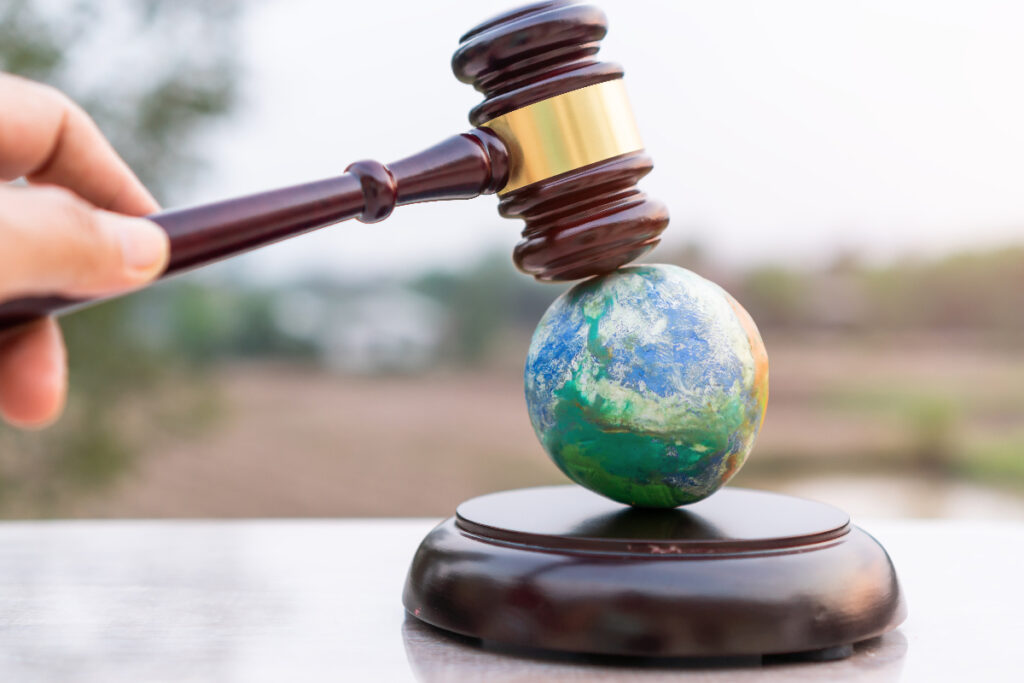ENVIRONMENTAL RIGHTS AND ECOLOGICAL JUSTICE IN INTERNATIONAL LAW
Introduction
In an era marked by escalating environmental concerns and the ever-pressing need for sustainable development, the role of international law in safeguarding environmental rights and ensuring ecological justice has gained paramount importance. As the global community grapples with the consequences of climate change, biodiversity loss, and other ecological challenges, the recognition and enforcement of environmental rights have emerged as critical tools for promoting a harmonious relationship between humanity and the natural world.
Defining Environmental Rights and Ecological Justice
Environmental rights encompass the fundamental entitlements of individuals and communities to a healthy and ecologically balanced environment. These rights often include access to clean air and water, the right to a safe and healthy workplace, the right to participate in environmental decision-making, and the right to seek remedies for environmental harm. Ecological justice, on the other hand, focuses on rectifying and preventing environmental injustices, which disproportionately affect marginalized and vulnerable populations.
The Evolution of Environmental Rights in International Law
The recognition of environmental rights in international law has seen significant progress over the decades. The 1972 United Nations Conference on the Human Environment in Stockholm marked a turning point by acknowledging the interconnectedness of human well-being and environmental protection. This paved the way for subsequent international agreements, including the 1992 Rio Declaration on Environment and Development, which enshrined the principle that environmental protection should be an integral part of the development process.
Key Instruments Safeguarding Environmental Rights
Several international agreements and conventions have been instrumental in upholding environmental rights and ecological justice. The Universal Declaration of Human Rights, adopted by the United Nations in 1948, indirectly underscores the right to a healthy environment by recognizing the right to life, liberty, and security of person. Regional instruments like the African Charter on Human and Peoples’ Rights and the American Convention on Human Rights explicitly recognize the right to a healthy environment.
Furthermore, specialized treaties like the Convention on Biological Diversity and the United Nations Framework Convention on Climate Change emphasize the need for sustainable resource management and global cooperation to address environmental challenges.
Challenges and Progress
While significant strides have been made, challenges persist in translating environmental rights into effective action. Enforcement mechanisms and the implementation of international agreements often face barriers due to issues such as lack of political will, limited resources, and conflicting priorities. Moreover, the global nature of environmental problems necessitates cooperation between countries, which can be hindered by differing interests and capacities.
Nonetheless, recent developments showcase growing awareness and action. Landmark cases in various national and international courts have recognized the rights of individuals and communities to a healthy environment, setting important precedents. Grassroots movements and civil society organizations are playing an active role in advocating for stronger environmental protections.
Looking Ahead: A Call for Enhanced Protection
As the consequences of environmental degradation become increasingly evident, the international community must intensify efforts to strengthen environmental rights and ecological justice. This involves bolstering legal frameworks, improving access to justice, and fostering international cooperation. The creation of mechanisms to hold states and corporations accountable for environmental harm is paramount.
In conclusion, environmental rights and ecological justice are pivotal components of international law that seek to balance human development with the imperative of protecting the planet. With collective commitment and collaborative action, the global community can pave the way for a more sustainable and equitable future, where every individual’s right to a healthy environment is upheld and respected.


